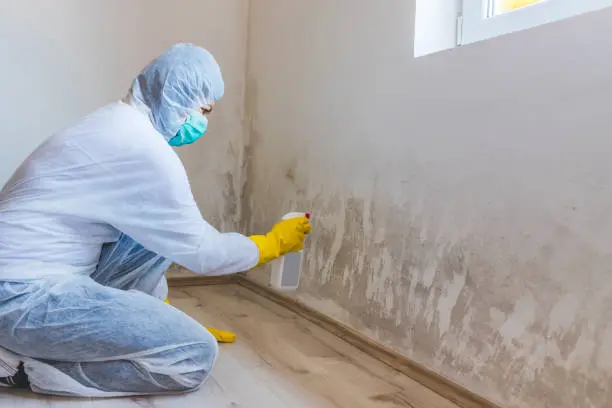You have discovered that you have the scariest thing in your home when it comes to Real Estate – MOLD! But did you know that ALL homes have mold? What determines if it is a problem are the types of molds present, the spore counts and how it is affecting you physically. If you have mold testing performed (with a Certified Mold Assessor, of course), and they have determined you have a problem, the next critical step is hiring a reputable Mold Remediation Contractor to ensure the source of the problem is addressed and all mold is contained and removed properly.
When hiring a mold remediation contractor, it’s important to make sure you’re working with a professional who is both qualified and trustworthy. Mold removal done improperly can leave behind hidden growth, cause health risks, and lead to costly repairs later! Here are the key steps to take when selecting the right contractor to make sure they are following standards:
- Verify Licensing and Certifications
- Ensure the contractor holds any state-required mold remediation licenses and that they are active and in good standing
- Look for industry-recognized certifications (such as IICRC – Institute of Inspection Cleaning and Restoration Certification; NORMI – National Organization of Remediators & Microbial Inspections; ACAC – American Council for Accredited Certification)
- Check Experience and Specialization
- Ask how long they’ve been in business and how many mold remediation projects they’ve completed.
- Avoid general contractors who only “occasionally” handle mold—specialized knowledge matters.
- Request References and Reviews
- Ask for past client references and follow up with them.
- Check their reputation by reviewing online ratings on Google, Yelp, or BBB reviews for consistency in quality.
- Get a Detailed Inspection and Written Estimate
- A reliable contractor should perform a thorough on-site inspection, not just give a quick quote over the phone.
- The written estimate should outline in detail the scope of work, equipment used, safety measures to prevent cross contamination, and cleanup process.
- Confirm Use of Proper Safety Protocols
- Ask how they contain affected areas to prevent mold spores from spreading.
- Ensure they use HEPA filters, protective equipment, and safe disposal practices.
- Ask About Insurance and Warranties
- Confirm they carry liability insurance and worker’s compensation coverage.
- Inquire if they provide a warranty or guarantee for their work.
- Avoid Red Flags
- Beware of contractors who pressure you into immediate decisions.
- Be cautious of unusually low bids—quality remediation takes time, training, and proper equipment.
Once a contractor has been selected and all work has been completed, post testing should be performed by a third party to ensure all areas were properly addressed and a Certificate of Completion should be issued for your records. It is discouraged to rely on test results if performed by the remediation since it can be a conflict of interest. A reliable mold remediation contractor will be transparent, properly certified, insured, and will actually prefer third party testing to ensure all areas are properly cleaned. Taking time to vet your contractor now can save you from bigger problems in the future!


Recent Comments